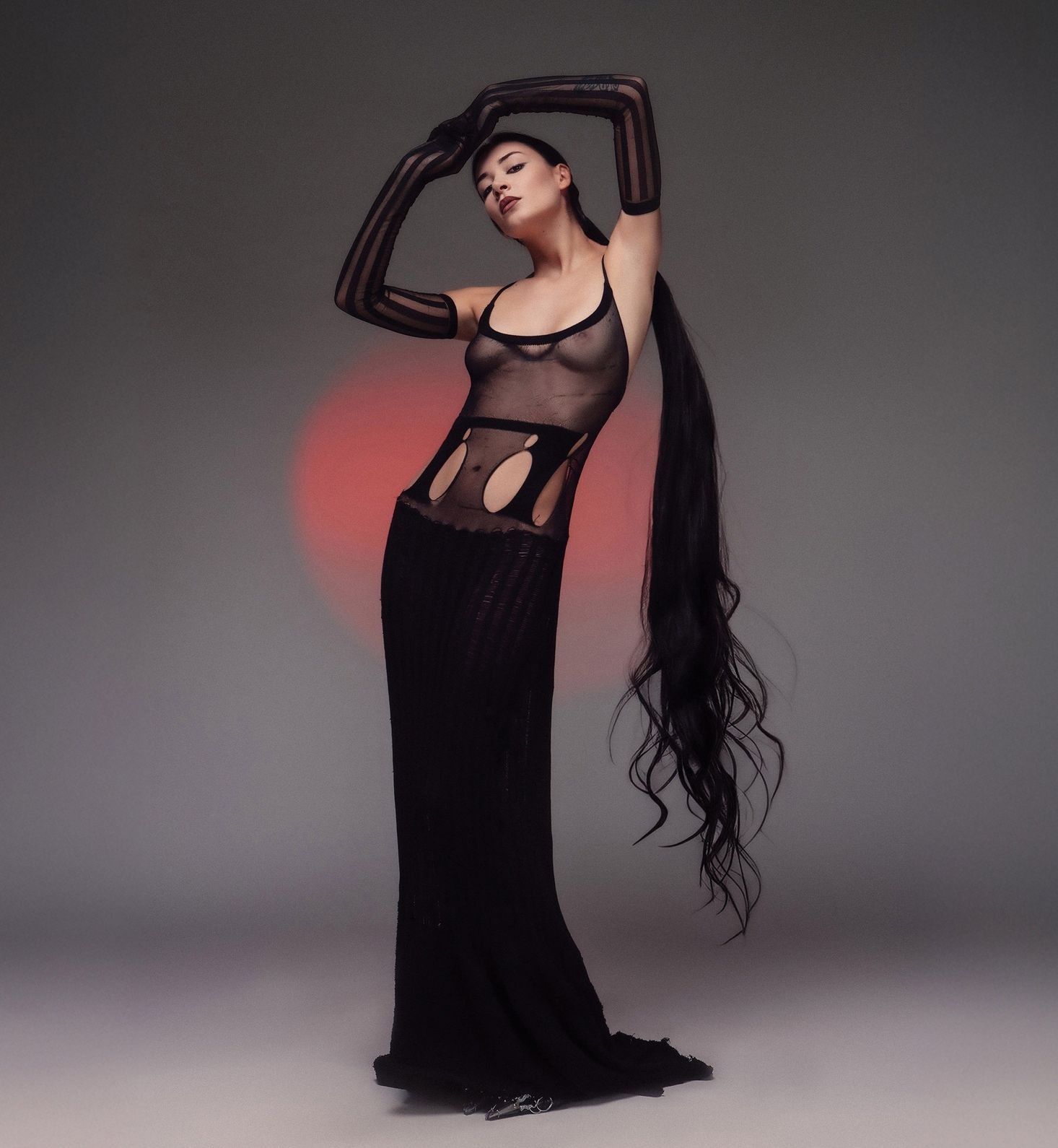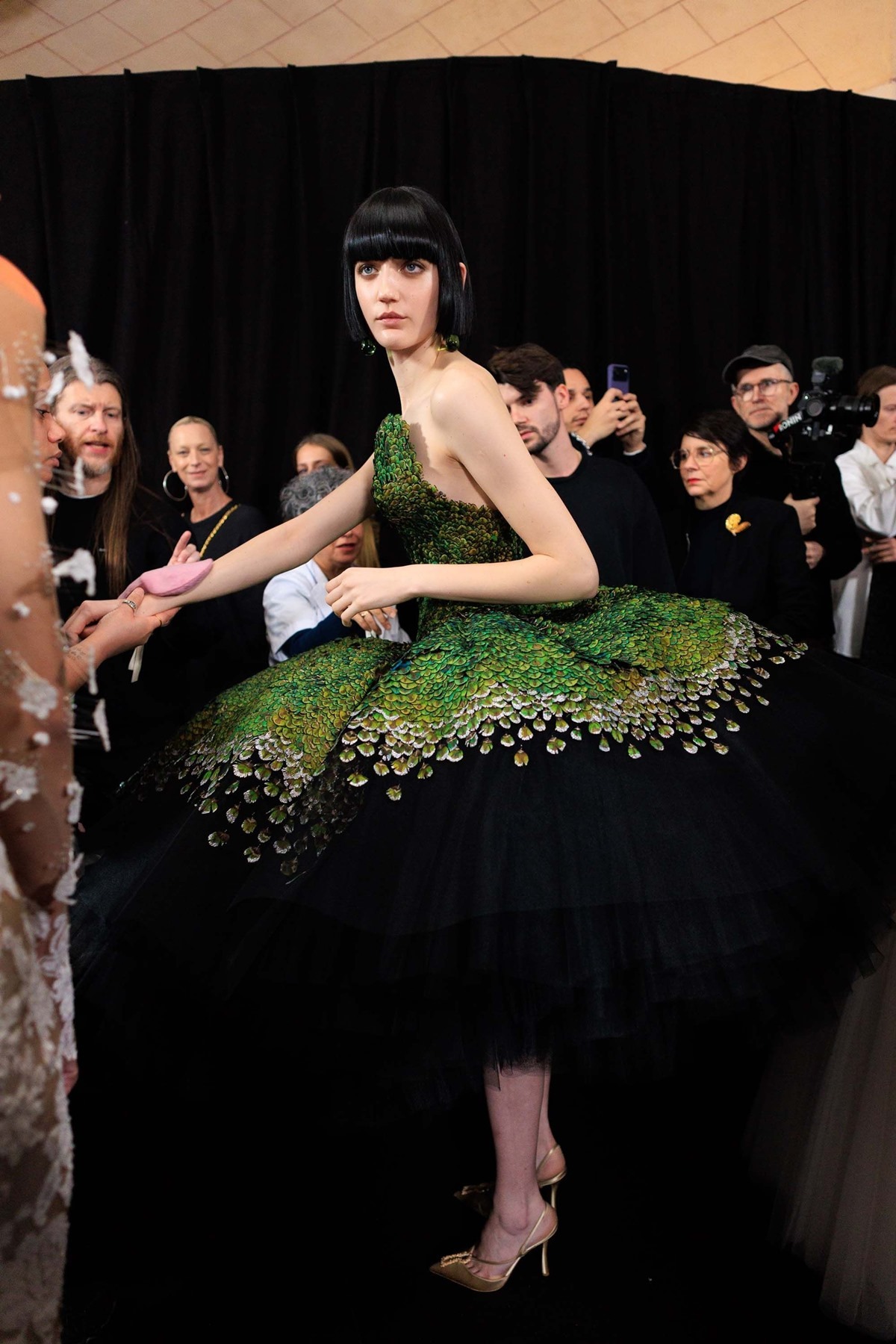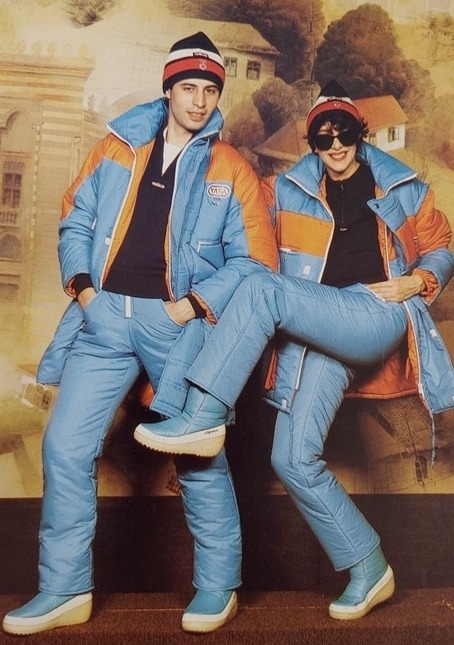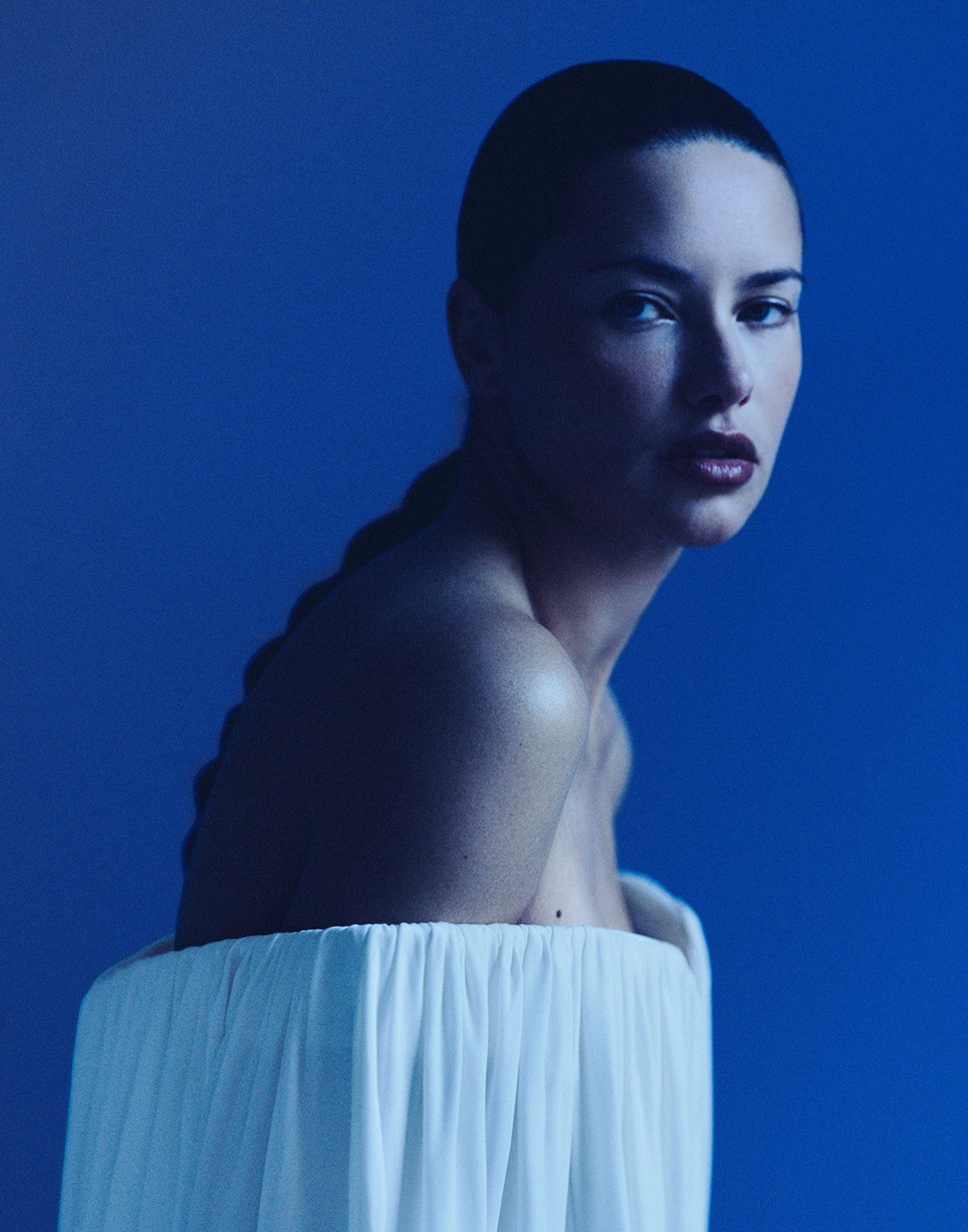
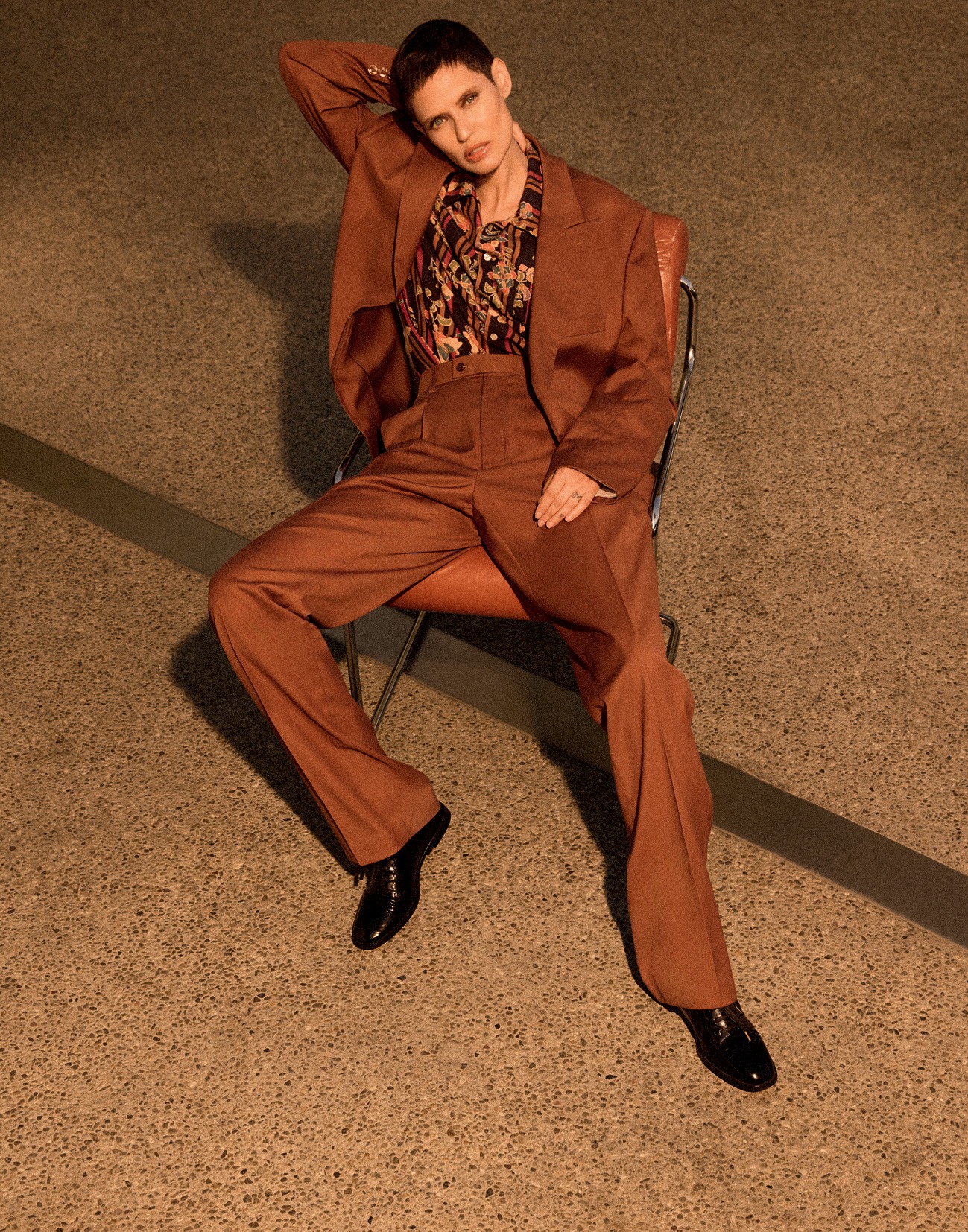
After surviving the toughest battle of her life, supermodel Bianca Balti opens up to Nenad Janjatović about what courage, vulnerability, and true struggle mean to her today.
– Ciao, Bianca.
– Ciao!
She flips on her phone camera, adjusting the angle until her face comes into view. Immediately, I’m captivated—not just by her striking beauty, that unmistakable Italian accent, or the short hair that suits her so well—but by the warmth of her smile. It never leaves her face, even as she navigates morning traffic, having just dropped her kids off at school.
Yes, she’s driving during our Google Meet interview. And yes, I took a few screenshots—because frankly, no one would believe me otherwise.
– Sorry I’m driving right now, she says casually.
– No problem at all. I’m just glad we could talk, I reply.
– Me too. Where are you?
– In Belgrade.
– I know so many people from Belgrade—friends. I really have to come one day, she says, genuinely lit up at the mention.
– Really? I didn’t know that.
– When I do, I’ll definitely visit you.
– It’s a deal!
We switch to talking about her latest shoot.
– It was wonderful, she says, eyes lighting up. – Everyone was amazing. It felt a bit surreal—I’d just come from India, stopped over in New York where we sat on the plane for six hours without taking off. Then they had us deboard, wait outside for an hour, and get back on again. Another six and a half hours later, we finally made it. Exhausting, but once I was on set, I barely felt it. We were just… shooting.
That blend of grace and grit is what defines Bianca Balti. For over two decades, she has embodied the spirit of high fashion—etched into public memory as the face of Dolce & Gabbana and the luminous woman behind the iconic Light Blue fragrance campaign. But her story took a deeply personal turn in 2021, when she revealed she carried the BRCA1 gene. In a bold act of self-preservation, she underwent a preventative double mastectomy the following year.
Then came another blow: in September 2023, Bianca was diagnosed with stage 3 ovarian cancer. What followed was not just a medical journey—it was the beginning of a new chapter. A battle, yes. But also a rebirth.
– I know the past few months have brought immense challenges. What kind of strength did you discover in yourself during this difficult period?
– In September, I was diagnosed with cancer—and yes, it was very hard. But somehow, I’ve always known I’m strong. Twelve years ago, I got sober. I struggled with serious drug addiction, and that was the first time I truly discovered my strength. Because that’s incredibly hard—fighting addiction, which is both physical and mental. When you’ve been living a certain way, it’s hard to change your lifestyle. But I did it, and I did it with grace. I’m extremely proud of that. That was the first time I truly realized what I was capable of… When I found out about the cancer, it felt different—because I thought it wasn’t up to me.
– Of course. With addiction, you choose to stop—that’s your decision. But cancer… cancer is something else entirely. It’s not in your hands.
– Exactly. But thankfully, I was wrong. In some stages of illness, yes—you lose control. But in my case, it was stage 3, which meant the cancer hadn’t spread to vital organs. It was present, yes, but not in places that would directly endanger me. And when I realized I wasn’t going to die, that I could participate in my own healing process, that’s when I truly tapped into my strength. I thought, “You’re not going to beat me.” If there’s anything I can do—stay positive, stay active, live as normally as possible—I’ll do it. All of that contributes to recovery. And I just decided then—I’m giving it everything I’ve got.
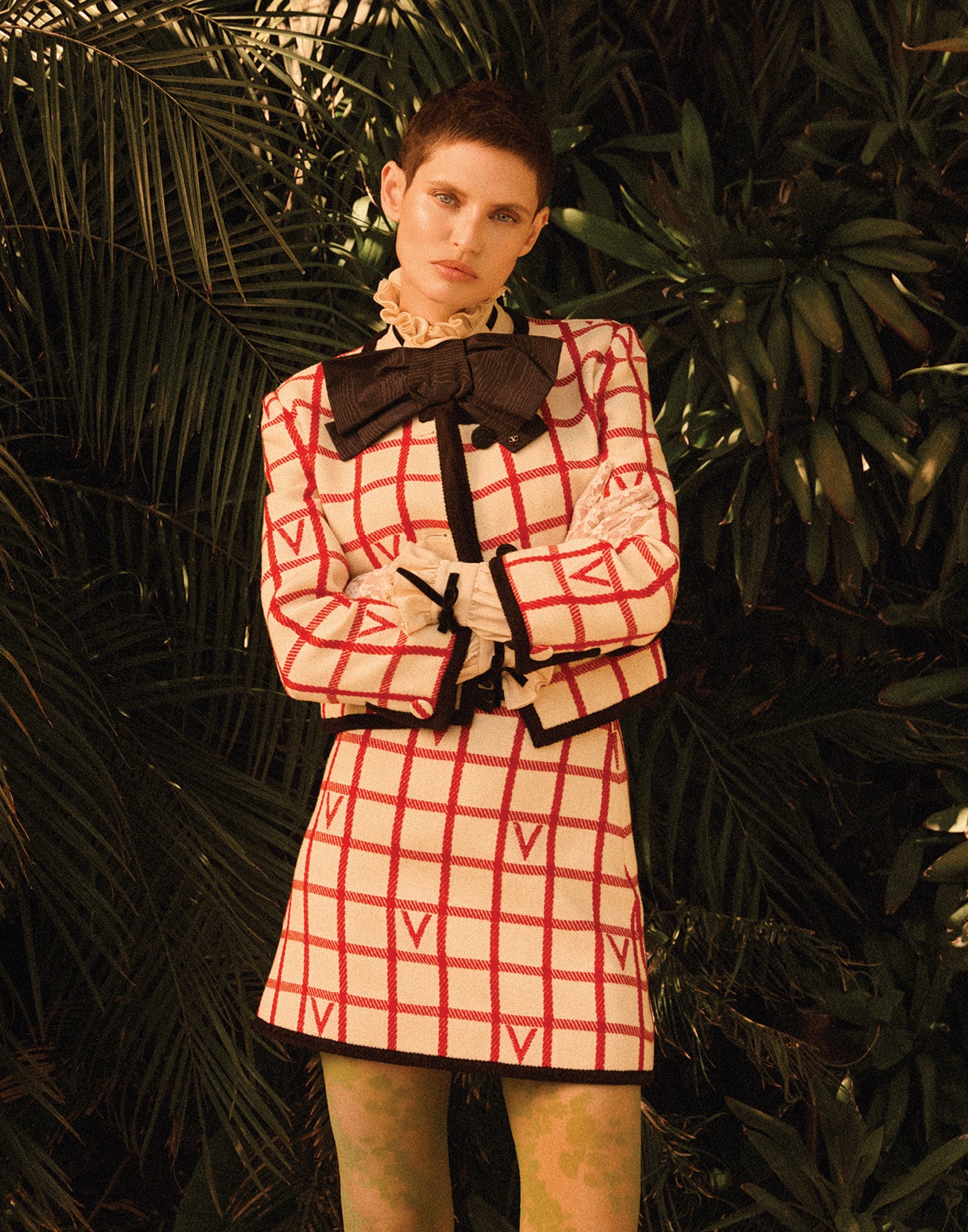
– Has your perspective on life or beauty changed after everything you’ve been through?
– Yes, absolutely. Life… I’m still figuring it out. But you know, when you come that close to death, you become so much more attached to life. I want to live now more than ever—because I truly understand how quickly everything can change.
When it comes to beauty—so much has shifted. When they told me I was sick, I knew I would lose my hair from chemotherapy. I knew I was going to have a big scar—running from my chest all the way down to my pubic bone. And I remember thinking: “How will I ever work again?” We’re not used to seeing women in fashion without hair, with scars. But then I realized—everything is possible.
Honestly, I was tired of being sick. No one was asking me to work because people were afraid to approach me. But it was so important to me to feel normal again, to work again. And I have to say—thank you for inviting me to do this. It means so much. It feels like my first real Vogue cover.
– I remember when you posted on Instagram that you were sick and had surgery—it was a shock for everyone. Of course, there was huge support, but what stood out was your choice to speak so publicly. In a world that often expects perfection, how did you find the courage to embrace your vulnerability and share all of this so openly?
– I think we sometimes get trapped in the idea that the world demands perfection. But honestly, I feel like I’m proof—again and again—that what the world actually wants is truth. I feel most at peace being someone who represents vulnerability.
There are a lot of people who aim for perfection—they’re always perfectly dressed, with flawless makeup, the best cars… and I look at them too sometimes, because we all love to dream, to admire beauty. But at the same time, I’m most comfortable being someone people can relate to. If I tried to be a perfect role model, the pressure would be unbearable. I’d rather just be myself. And every time I am—people love me the most.
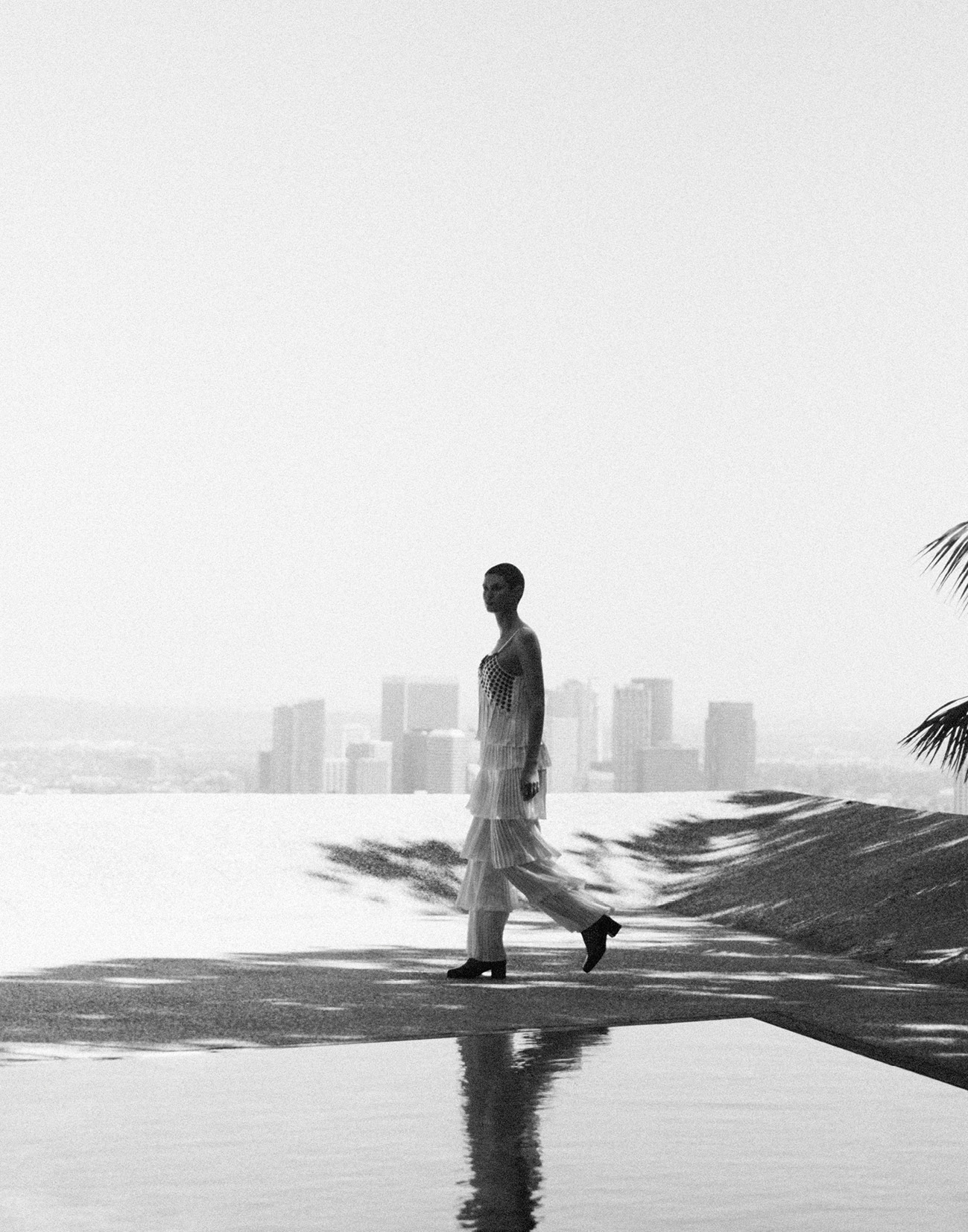
– That makes sense. Do you hope to inspire others through this openness? Or maybe help raise awareness so that people check in on their health sooner?
– Absolutely. After I announced I had cancer, something incredible happened in Italy—gynecologists were flooded with calls from their patients. So many women wanted to schedule check-ups.
– That’s amazing.
– It is! It’s powerful. When they told me, I thought—wow, this is really something. You know, some people say, “Everything happens for a reason.” I don’t really like that, because it would mean someone dying also happens “for a reason.” That doesn’t sit well with me. But if you say—life just happens, and we can give it our own meaning—then yes. If I can give this experience any meaning, it would be this: if someone decides to go get checked, or if a woman with cancer and no hair sees herself as beautiful again, then let that be the reason.
– Who was your biggest source of support during those difficult moments?
– My boyfriend. And of course, my friends. In the beginning, when I was in the hospital, I was overwhelmed with love. I was never alone—not for a single moment. My friends took shifts, 24 hours a day, to be with me. They’re incredible. But my boyfriend… I’m a mother, and even when I’m sick, I still feel the need to take care of others. I’m an adult now—my mom no longer takes care of me, and she’s also sick, just like my dad. At this stage of my life, I needed someone who would take care of me. That’s what my boyfriend gave me. With him, I could let go and feel safe. That helped me a lot.
– In the video you did for Vogue Adria, you mentioned using affirmations. Do you have a specific mantra or phrase that calms you or lifts you up?
– If you came to my house, you’d see Post-its everywhere—on the walls, on the mirrors—with messages like “Today I live with purpose” or “I’m aging with grace.” I have affirmations all over. Then I discovered that Spotify has affirmations, and I love playing them in moments of silence—like when I’m washing my face or getting dressed.
You hear things like “I am strong” or “I will light up the room when I walk in.” They’re beautiful. As humans, we tend to overthink—problem, solution, another problem. The mind is always spinning. So I love hearing those positive words. Even when it feels like I’m not consciously listening, I know they’re reaching me over time.
– You’ve achieved so much in fashion. Looking back, is there a moment that made you think, “This is it—I’ve made it”?
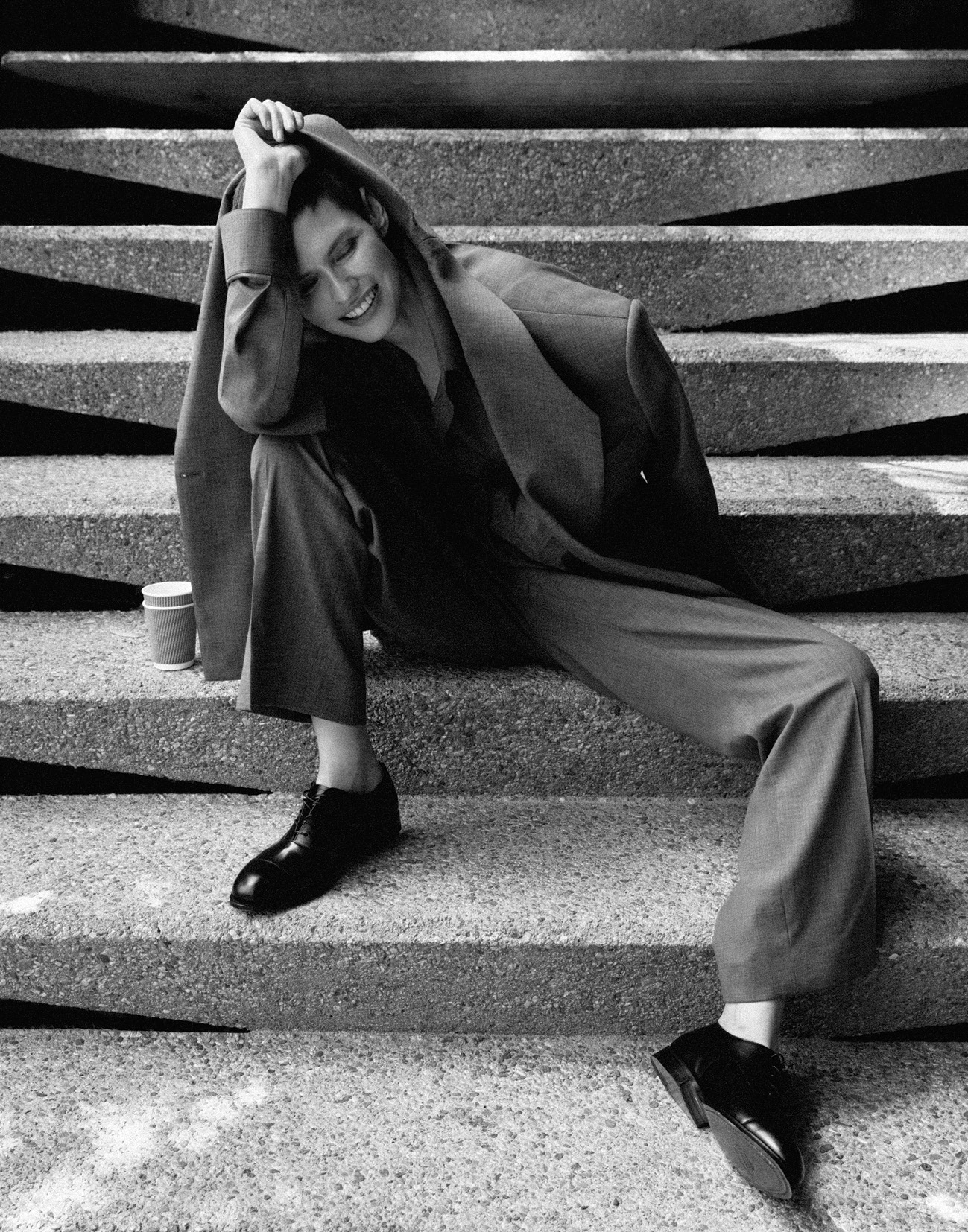
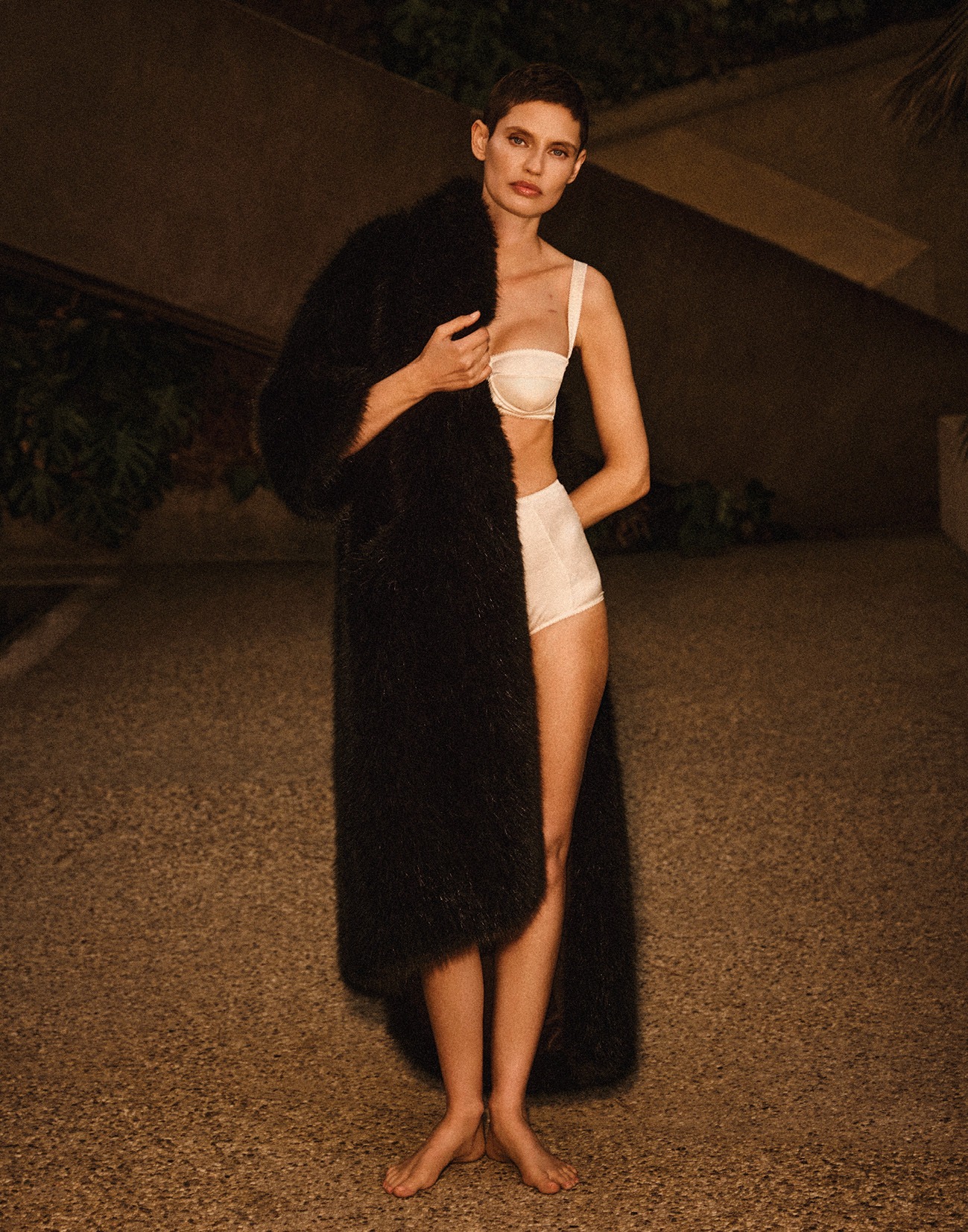
– One of those moments was definitely when I signed the contract with Dolce & Gabbana for Light Blue. I had worked with them from the very beginning—21 years ago. Light Blue, with David Gandy in the campaign… it was like the ultimate dream.
Another huge moment was when I signed with L’Oréal Paris. I worked with them for eight years. I grew up watching all those amazing icons and thinking, “Imagine being one of them…” and then suddenly I was filming the commercials, saying “I’m worth it.”
– So your affirmations started with L’Oréal.
– That’s true! And honestly—thank you. I’m not just saying this to be polite, but what Vogue Adria is doing now is truly iconic and meaningful. Being asked to do a Vogue cover after everything I’ve been through—that was a big, big moment for me. I feel incredibly lucky.
– What advice would you give someone starting out in the fashion industry today?
– My daughter is just starting now—she’s moving to New York soon. I always tell her: “It may look like a lifestyle, but it’s a job.” Don’t confuse modeling with a way of life. Yes, it comes with perks and privileges, but at the end of the day—it’s work. Sometimes you’re tired, sometimes it’s not fun. You have to make smart, strategic decisions. That’s my biggest advice.
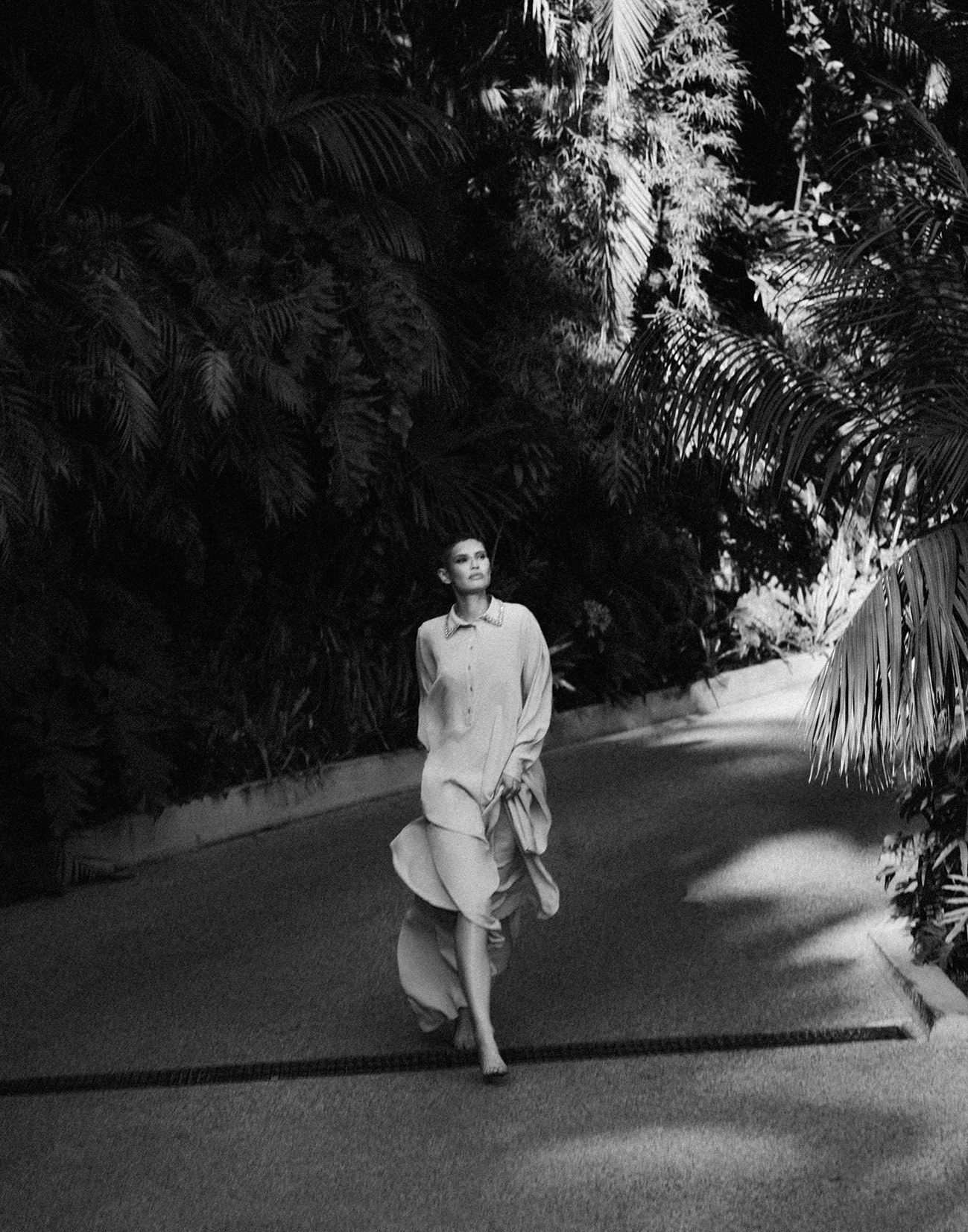
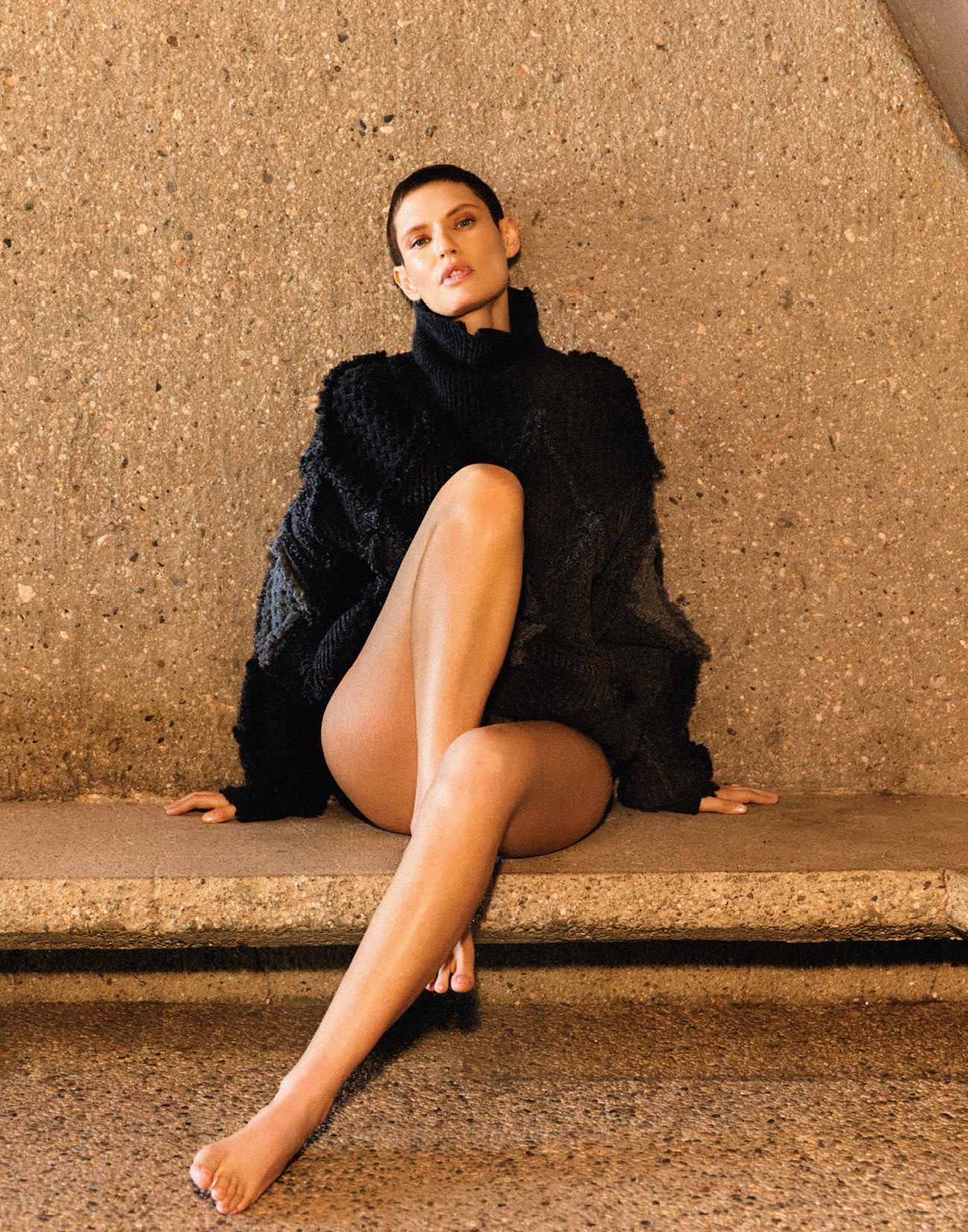
– Speaking of children—how have your daughters shaped the way you see the world?
– Wait, let me just get out of the car…
She parks in reverse, gets out, and sits on the grass in front of her house. I snap another screenshot.
– Okay, I’m here. What was the question again? Oh right! I started modeling when I was 20, and I became a mother at 23. So I’ve always been a mom. They’ve been my biggest motivation—whether it was to get sober or to build a real career from this job. I’ve always had that sense of responsibility. It wasn’t just “great, I’m making good money.” I wasn’t the kind of person to say, “Let me go on vacation and buy bags.” There was always a purpose. They’ve been at the center of everything I do. Honestly, they’re the best thing that’s ever happened to me. You know, earlier this year, when I appeared at Sanremo, the host introduced me as “a mom,” and some feminists criticized him: “Why are you calling her a mom? She’s a woman, that’s not a job title.” But honestly—if you asked me how I see myself, I’d say: first and foremost, I’m a mother.
– And that’s totally okay.
– It is. That’s truly how I feel. I don’t need to prove that I’m a professional. The most meaningful thing in my life is motherhood.

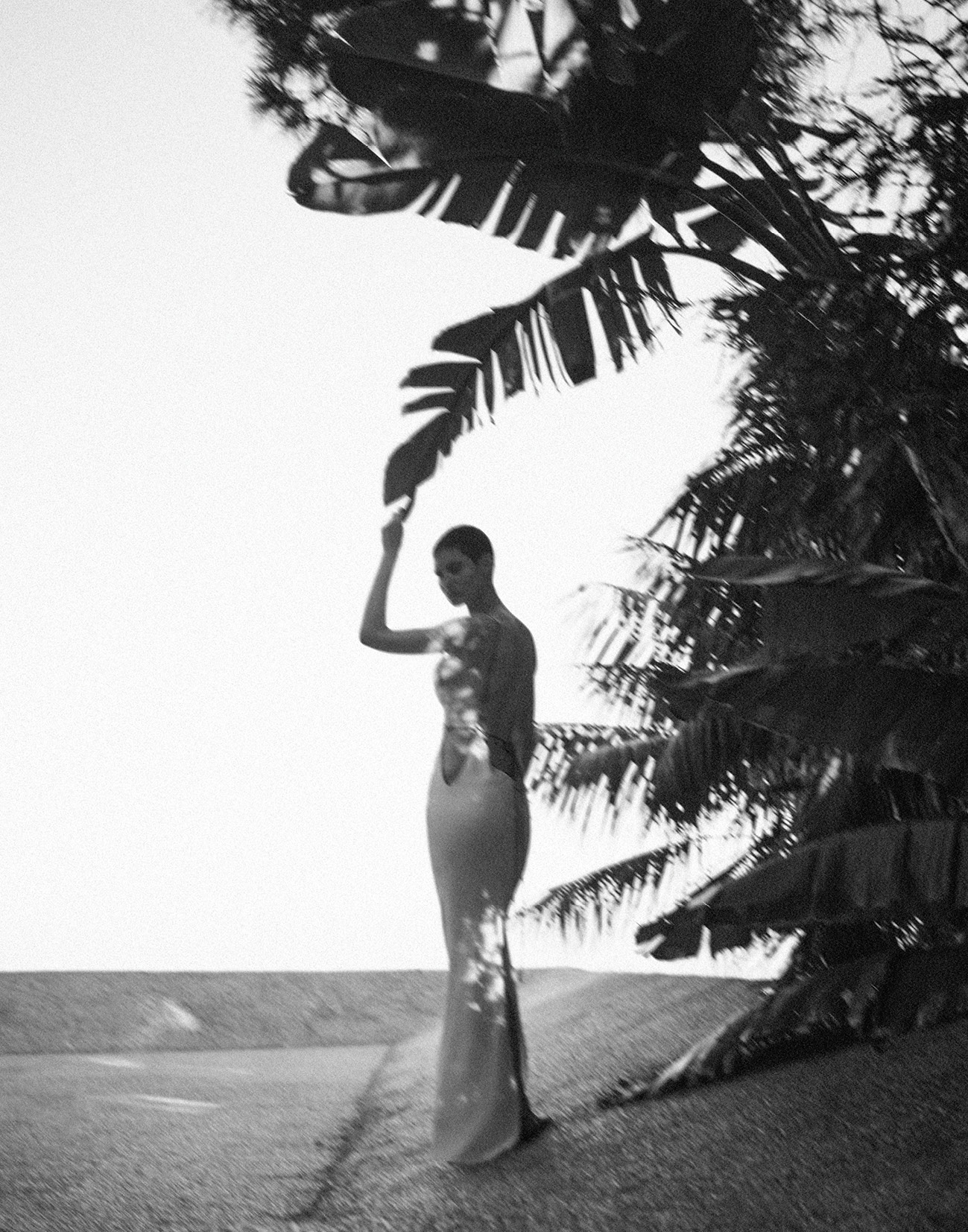
– How do you handle the pressure of being in the public eye? I know you’re huge in Europe and Italy, but in Los Angeles, where you don’t bump into as many people and you drive yourself around like you’re doing now—does it feel like a safe space?
– Yes! It’s comforting to feel normal, like nobody knows who I am—or even if they do, they don’t care. And that’s okay.
Of course, being recognized is also nice. It’s good for the ego. It feels great. But at the same time, it can be mentally exhausting.
– So Europe and LA make a good balance?
– A perfect balance. A little bit for the ego, and a little bit for the soul.
– Many people see you as a glamorous model. How do you see yourself?
– I’m just beginning to figure that out. I never really questioned it before—my place in the world or any of that. But now, I feel like a strong woman. I embrace my public identity more. I feel like I’m a role model today—more than I am glamorous. Because, honestly, if you know me, you know I’m not that glamorous.
– You mentioned that your advice to your daughter—and maybe to every young model—would be that modeling is a job, not your whole life. So, if you hadn’t become a model, what do you think you would have done?
– When I started modeling, I was in university. I loved graphic design—I was more of a visual artist. I used to make collages, I was really into visual expression. I also started sewing at the time—I loved making my own clothes. I was very creative.
I don’t know exactly what path I would have taken, but my best friend Valentina once told me, “I have no doubt that if you hadn’t become a model, you would have been successful at anything you chose.” And she didn’t just say that to be nice—she really meant it. That meant a lot to me because I am persistent, strong, and I go all in. Whatever I would’ve chosen—I would’ve made it.

– Do you have any sense of what’s next for you? – I ask.
She pauses, thoughtful. “I do have one big idea. I don’t know exactly how I’m going to make it happen yet, but I want to keep inspiring people.”
Her voice is steady, grounded. “I have a few things in mind, but what matters most to me is continuing to show vulnerability—because I know how much strength it can give to others. I’m just trying to find creative ways to share that.”
She smiles. – And thank you for helping me do that—this way.
– Thank you for everything, – I say.
– Thank you so much for the conversation. Ciao!
Bianca ends the call, and her camera fades to black. I remain at my screen, still, feeling the echo of something meaningful. In just thirty minutes, something had quietly shifted—one of those rare conversations that lodges itself somewhere deeper, beyond words.
Her story is more than resilience. It’s a reminder that within each of us lies a well of strength we might not know we have—until life calls on us to use it. We endure. We evolve. And most importantly, we lift one another up.
As Bianca puts it, with the clarity of someone who has learned what truly matters: “To give things meaning.”
Photo: Matt Easton
Styling: Anda + Masha
Model: Bianca Balti @Elite Models NY
Hair: Maranda Widlund
Makeup: Holly Silius
Manicure: Sayo Irie
Creative Producer: Marita Bobelj
Production: French Productions
Executive Producer: Carling French
Production Manager: Kit French
Photo Assistant (1st): Mikey Massas
Photo Assistant (2nd): Nicole Alvarenga
Stylist Assistant: Lily Oakes
Makeup Assistant: Natalie Tchokref
Location: The Goldstein Residence
